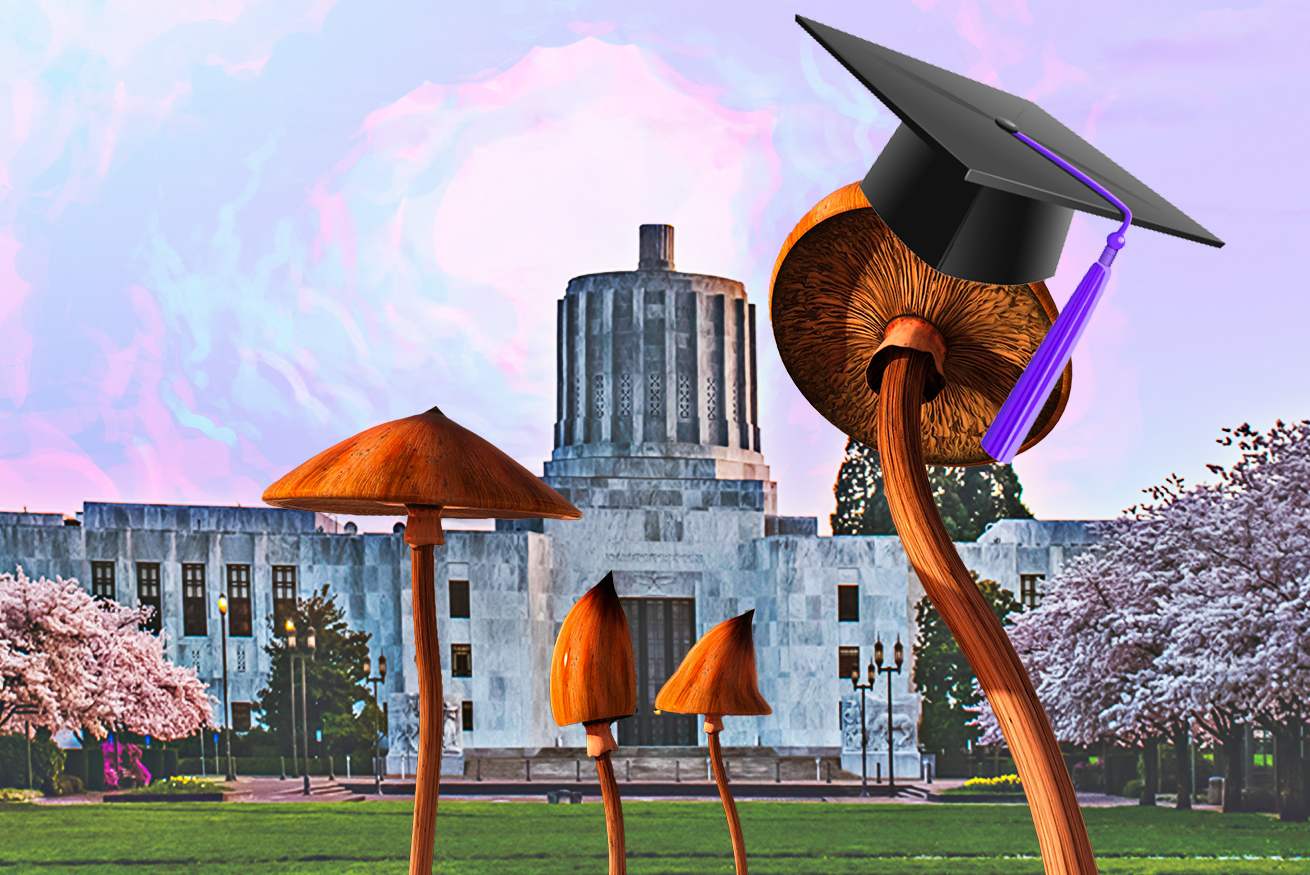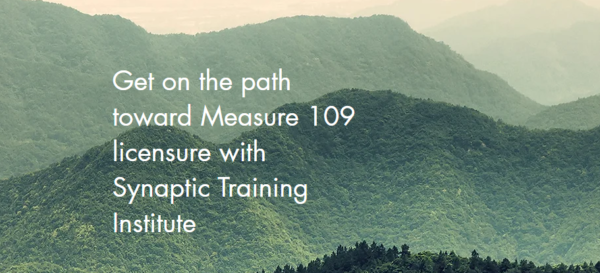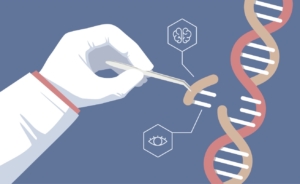
On a cold early winter weekend, 20 students learned basic counseling skills, discussed ethics case studies, and supported each other through low dose ketamine journeys. The students’ goal is to become psilocybin facilitators under Oregon’s Measure 109. The Synaptic Training Institute, an Oregon nonprofit, launched their unique training model to increase accessibility into this new field.
Measure 109, approved by Oregon voters in 2020, allows individuals to receive psilocybin in a safe, supervised environment at approved service centers. The service centers will be staffed by licensed facilitators, all of whom go through 140 hours of training. Psilocybin has been given breakthrough treatment status for depression by the FDA*, and there is strong evidence it reduces the impact of anxiety*, PTSD*, and substance abuse*.

Though no psilocybin service centers have opened, costs could be a barrier to entry. Facilitator licenses costs $2000 per year, and the average tuition for facilitator training is $8000. Synaptic’s nonprofit status enables the organization to offset tuition costs with scholarships. This unique model lowers the barrier of entry to become a professional facilitator, making it accessible to a more diverse population of Oregonians, including but not limited to veterans and BIPOC community members. A third of this inaugural cohort has received scholarships to attend.
Dr. Matthew Hicks, ND, founder of Synaptic, had this to say:
“I was really pleased with how well our inaugural retreat went. I was also deeply touched to see the personal growth that students reported as a result of their practicum experiences as well as our coursework in trauma informed care and consent.”
He continued: “I am really excited about the possibilities we have brewing for future cohorts. While working with ketamine for our practicum experiences has been successful, we are excited to start working with psilocybin. I am not prepared to make any announcements yet, but we have collaborations with several other organizations both regionally and globally to provide some stellar practicum opportunities.”
“The program provides a minimum of 5 scholarships for BIPOC and up to another 5 for queer folks. They range from 25%-75% total tuition.
This is important because it provides an equitable avenue to increase the number of BIPOC and queer facilitators. This increase in credentialed BIPOC and queer facilitator representation has the potential to attract more BIPOC and queer clients for specific areas of healing, including, but not limited to: generational trauma, racial trauma, sexual trauma, gender-based trauma and restoration of social and cultural identity. These areas represent mental health disparities in BIPOC and queer populations when compared to white, heterosexual and cisgendered. With increased representation of facilitators, we hope to lower the barrier to healing by removing potential activators/triggers for potential BIPOC and queer clients and fostering a safe space for these clients to be vulnerable and begin the process of healing within themselves.”
The Synaptic Training Institute will begin its next cohort in June of 2023 and is actively fundraising to offer additional scholarships, and to hire paid staff. Individuals can donate at the Synaptic Training Institute: https://www.synaptic.institute





